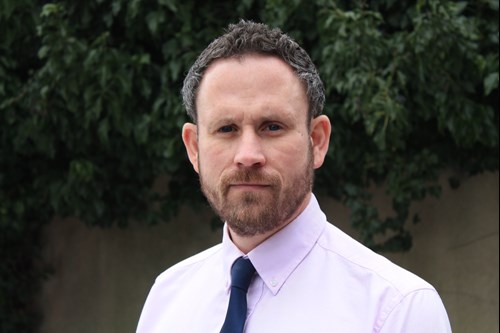A National Insurance increase on top of a police pay freeze is a “punch to the stomach” for police officers
10 September 2021

The increase in National Insurance is a “punch to the stomach” for police officers, especially since it comes on the back of a pay freeze, Norfolk Police Federation has said.
The 1.25% rise in National Insurance, which the Government says is needed to pay for health and social care, follows a 0% pay rise for police officers. Andy Symonds, Chairman of Norfolk Police Federation, said officers were struggling financially, with many being forced to go to loan companies or organisations to help them manage their debts.
He said: “The announcement of the National Insurance increase is another punch to the stomach for police officers. My colleagues will not get any pay increase this year, as the Government instructed the PRRB – a supposedly independent pay review body – not to award officers a pay increase.
“So the increase to National Insurance will add to the years of austerity and pay freezes officers have been subjected to over the past 11 years. Let’s be honest, the cumulative impact over the years on officers’ take-home pay is extremely detrimental.
“Officers have limited rights and cannot strike; we have been taken advantage of due to this fact. The human impact of this is that we have supported officers who have required loans from the force’s Benevolent Fund or loan companies, to be able to get by. We’re referring more of our colleagues to organisations that support officers with managing their debts.”
Andy added that this financial hardship was adding to the stress that officers already faced in their jobs. He said: “This has an impact on officers’ mental wellbeing. They already work in a profession that requires them to work flat-out from the minute they arrive into work to the minute they finish their duty.
“Demand is constant, and officers see and deal with extremely distressing incidents and regularly place themselves in harm’s way. Add to the personal financial hardship many officers are facing, and it’s a perfect storm.
“Officers are stuck between being physically and mentally exhausted, but financially they need to work overtime in order to pay their bills. Yet we’re seeing more officers turning down overtime, as they need to be able to rest so they’re ready for the next set of demanding shifts. They then have to deal with the impact of turning this extra money down will have on their personal finances.
“Police officers should not have these ever-growing financial vulnerabilities due to the role they play in society.”
Other public sector workers have received a pay rise this year, while police officers earning over £24,000 received 0%. This amounts to a real-terms cut in pay, especially as inflation is at 2%.
John Apter, Chair of the Police Federation of England and Wales (PFEW) tweeted: “Policing is underfunded and undervalued by this Government...The Government has lost the trust of my colleagues.”
The Police Federation hopes to put these issues to Home Secretary Priti Patel, who is expected to address the police service at the Superintendents’ Conference next week. It is also planning a campaign to highlight to decision-makers “how the system is stacked against police officers”, Andy said.


















